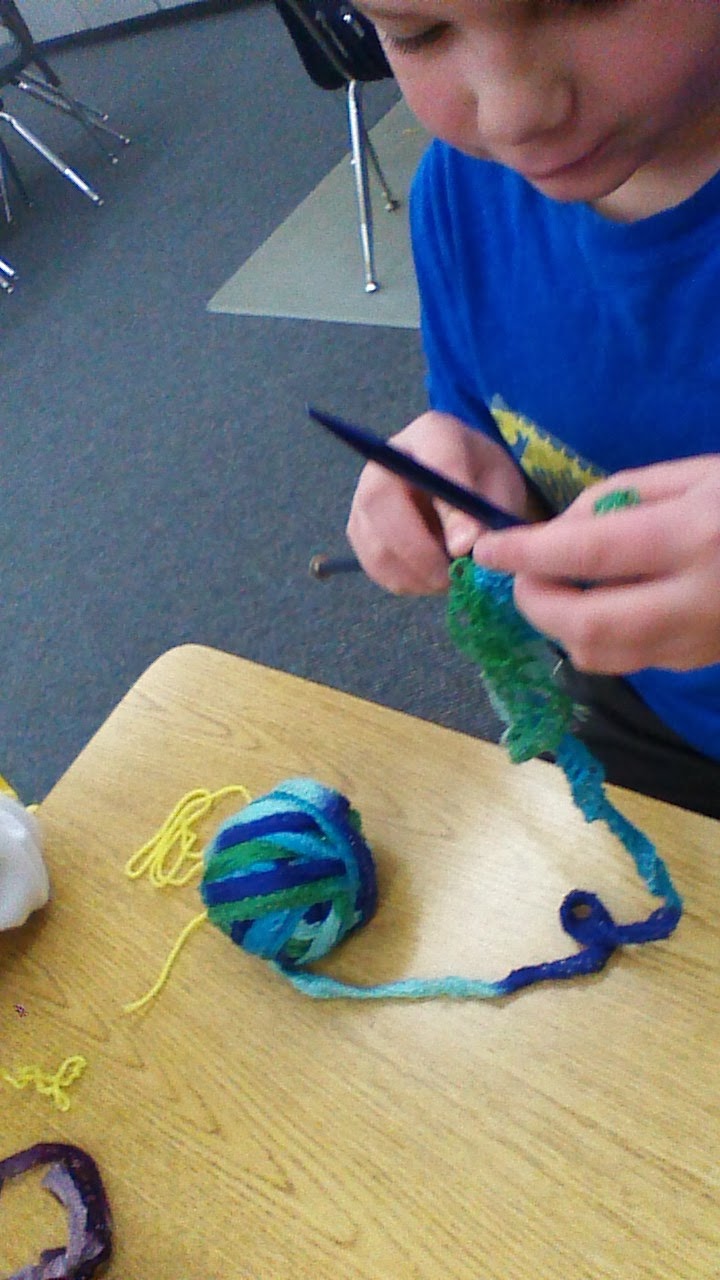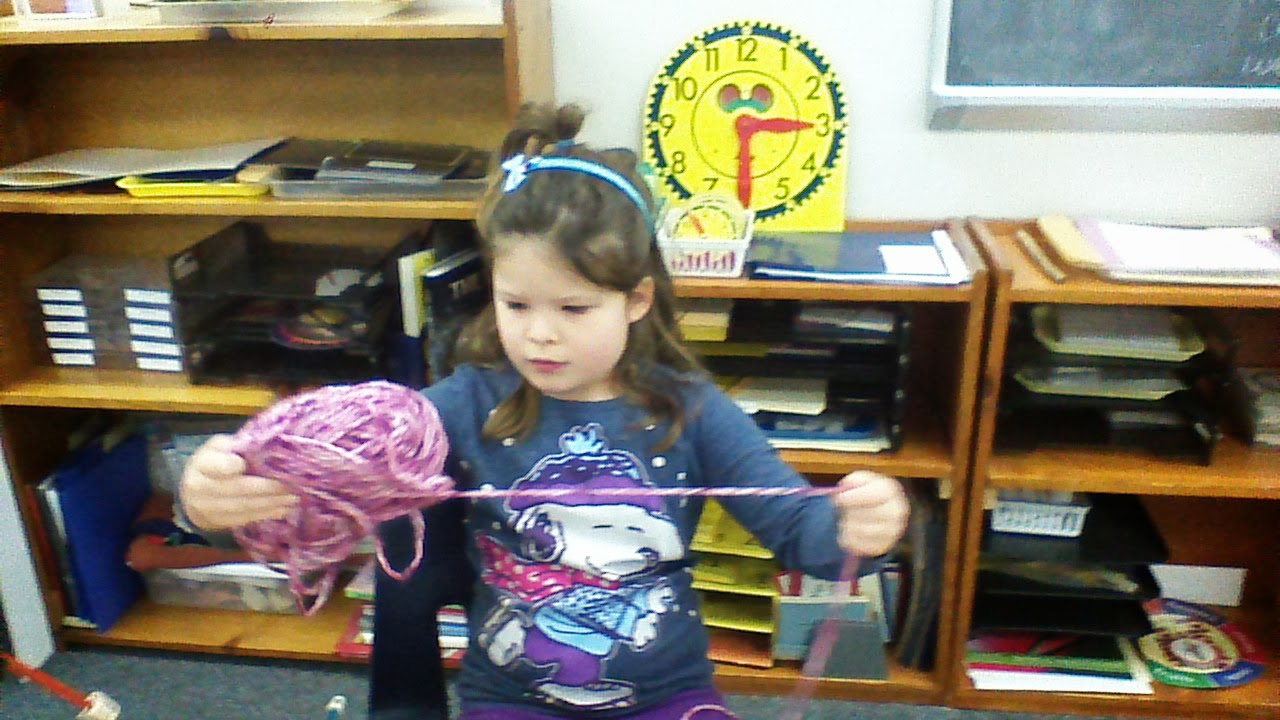Just
before winter break the balls of colorful yarn, knitting needles, potholder
looms and loops once again became a part of classroom life. The older students
had been requesting that we start knitting, an activity that they have enjoyed
for the past two years.
Some of the
students do finger knitting which allows them to create long strands of
knitting while other students knit with needles. Students who are waiting their
turn to be helped to learn to knit may choose use the potholder looms. Knitting and
making potholders are great practical life works for the lower elementary
classroom. In addition to learning how
to do useful new crafts, students use concentration and further refine their small
motor skills while creating original pieces that are often destined to become
gifts for parents or siblings. The more experienced knitters are happy to help
beginning knitters. Older students help
younger students take their potholders off of the looms. Those students who know
how to do finger knitting offer to teach this to others. Co-operation and community are evident
throughout the classroom as our students become immersed in these works.

























